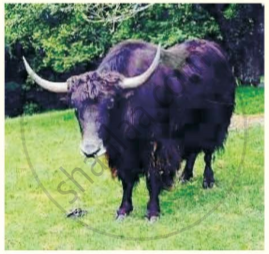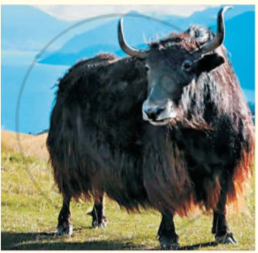Advertisements
Advertisements
प्रश्न
List common dilemmas that teenagers face involving the choice of one or more “roads”. Give examples of “roads” that you must travel (e.g. facing peer pressure, choosing friends, observing rules laid down by school and parents, acting on your own values).
उत्तर
The teenagers do face common dilemmas involving the choice of one or more “roads”. The common dilemmas that most of the teenagers face in life are:
(a) facing peer pressure
(b) choosing the right kind of friends
(c) observing rules laid down by school and parents
(d) following the instructions of the parents
(e) choosing the right profession
(f) following the right moral and social values
(g) choosing appropriate clothes and shoes In all these common dilemmas, I want to opt for ‘safer’ and ‘less risky’ options.
APPEARS IN
संबंधित प्रश्न
Given below are five qualities that Charles Hooper displayed during his struggle for survival.

Get into groups of four. Each team will choose one quality to talk about to the whole class for about one minute. But before you talk you have two minutes to think about it. You can make notes if you wish.
Based on your reading of the story, answer the following questions by choosing
the correct option.
Pescud felt that best-sellers were not realistic as.
Answer the following question briefly.
Who was the passenger of chair No. 9? What did he suddenly do?
The following is a flow chart showing the course of the brook. Can you fill in the
blank spaces with help from the phrases given below?
a) passes under fifty bridges; b) comes from the place where coots and herons live;
c) passes lawns filled with flowers; d) crosses both fertile and fallow land; e) goes
through wilderness full of thorny bushes
Work individually, and rank the seven stages in order of attractiveness. If you
think being a schoolboy is most attractive stage, you could rank it number 1.
Then, work in groups of four and compare your individual rankings.
Here is a news story about how crops are saved by climate-proofing them Complete it by choosing the right words from those given in the brackets.
(A) Among the most worrying aspects of climate change today (a) __________ (is/has been) the effect it (b) __________ (has had/have had) on the food supply of the world. Sctentists (c) __________ (have focussed /focus) their attention and efforts on increasing crop yield and improving crop resilience. Asia and Sub-Saharan Africa (d) __________ (have been I are) the most affected today. Their population (e) __________ (is/has been) the world’s fastest growing rice consumer. The most vulnerable agricultural systems (f) __________ (are/have been) the rain-fed uplands and lowlands that form 80% of total rice land. Until recently, scientists (g) __________ (have focussed / focussed) on improving crop yields, and in a relatively short period of time, (h) __________ (give / have given) us, higher yields. Reports warning of increased droughts and floods, (i) __________ (shift/have shifted) scientists’ attention to making crops “climate- proof”
(B). Answer the questions based on your reading of the passage above.
(a) What have been the most worrying aspects of agricultural growth?
(b) What do scientists today focus on?
(c) Where is the negative impact of climate most felt?
(d) What have the scientists focussed on so far?
(e) How has their attention shifted?
(C) Did you know
You would have used the simple present and present perfect tense in your
answer. Why?
The main use of the simple present tense is to refer to
(i) an action that takes place now.
(ii) routine action/ s.
The present perfect tense is used to refer to an action which has happened
in the past but whose effect still remains.
(e.g.) Among the most worrying aspect of climate change is the effect it has on
the world's food supply.
Climate scientists have predicted that the cultivation of rice in Asia and SubSahara
Africa has been affected severely, since 1970. But, today lack of funds
hinders research.
Used to and Would
(A) Read the passage given below. Substitute ‘used to’ with ‘would’ wherever appropriate so that the passage reads better.
When I was a student, I used to visit the library frequently. The librarian was a kind man and he used to help me select my books. There used to be a small tea shop near the library. After spending a few hours in the reading room of the library, 1 used to go to this tea shop to meet my friends. There used to be an old waiter who kept a corner table reserved for us.
No. This is because they are used differently.
Read the passage again and complete the sentences below.
1. ‘used to’ is used to describe _______ in the present as well as situations that existed in the past.
2. ‘would’ is used to describe only _______ in the past.
(B) Think of the days when you were eight years old. Write down four or five things you would do or used to do or be. Make sentences like those in the box. Share your experiences with your partner.
In Units 1 and 2 you learnt and practised the skill of deducing the meanings of new words by using other words in the given context. Now use that skill to deduce the meanings of words in the article you have read. Here is an example.
(a) They are solitary creatures with the exception of the mothers and calves and breeding pairs, although they sometimes congregate at bathing places.

Deduce the meanings of the following words from the passage you have just read, using other words in the context to help you. Copy and complete the following :
| Word | Words/clues that helped me | what I think the word means | what the dictionary says | were you (✓) (tick mark) or (x) |
| confined | ||||
| ranged | ||||
| overlapping | ||||
| bobbing | ||||
| olfactory | ||||
| aggregation | ||||
| plummeting | ||||
| mortality | ||||
| vulnerable | ||||
| poached |
Imagine that you are conducting a research on the conservation of a few animal species in India. You have been asked by the Wildlife Trust of India to prepare a report on the future of the YAK that lives in the Ladakh region of the Himalayan mountains . In groups of four, discuss the issue and make notes for your report. Refer to the Question 2 and the information in the box given here.

| DOMESTIC YAK |
| herd animals 2-2.2 m tall |
| used in sports |
| kept for milk , fur , fibre , meat , drawing ploughs etc |

| WILD YAK |
| length:3-3. 4m |
|
habitat: treeless uplands
|
| killed for food |
| insulated from cold by dense, close matted under hair , shaggy outer hair |
| hunted for similar reasons as the domestic ones |
Within your group, discuss
• What is the problem? How has it arisen?
• What is the best way to preserve these species?
• Why do we need to preserve these species?
• What values need to be inculcated in the hearts of human beings? Why?
• What actions would you recommend to the World Wildlife Federation?
• How is global warming affecting these species?
Look at the notes below. Then use the information to complete the paragraph by choosing a suitable word or phrase in each space. Do not add any new information. The first one has been done for you as an example.
Galapagos Islands
Visitors to these Pacific Islands – leave – unstamped – mail them – return home – picture post-cards – show up – since 1960s – self perpetuating post office probably set up – to get news from their family, friends – tradition persisted – post office – establish – 1950s – barrel – replace – many times – weather worn plaques remain.
Tradition has it that visitors to these Pacific Islands (a) leave unstamped, addressed postcards and letters in a barrel at Post Office Bay, to await pick up by other tourists who affix postage and (b) __________ when they return home. Picture post-cards (c) __________ in the barrel since the late 1960s, when tourists began visiting the Galapagos Islands. The self- perpetuating post office (d) __________by whalers in the late 1790s as a way to get news to and from friends and family. The tradition persisted even after a post office (e) __________on the island of Floreana in the 1950s. The barrel (f) __________ many times, but weather worn plaques, where sailors long ago and from far away carved their names, remain.
| (a) (i) leaving stamped (ii) leaves unstamped (iii) leave unstamped (iv) left unstamped |
(b) (i) mail them (ii) mails them (iii) mailed this (iv) mailing these |
(c) (i) show up (ii) shown up (iii) are show up (iv) have show up |
| (d) (i) is setting up (ii) was set up (iii) is set up (iv) has been set up |
(e) (i) is established (ii) is being established (iii) was established (iv) has been established |
(f) (i) replacing (ii) has been replaced (iii) is replaced (iv) was replaced |
